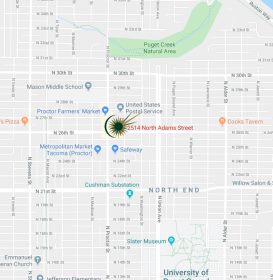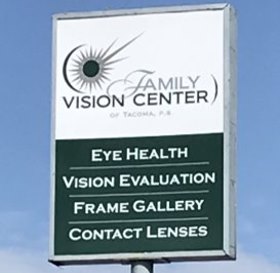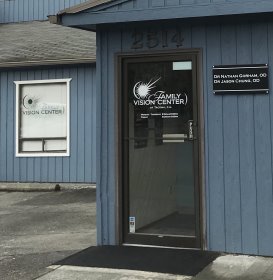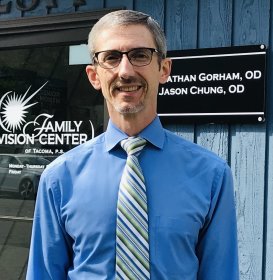Contact Lenses
Whether you want the freedom to be more active, or want unrestricted peripheral vision, contact lenses are an excellent alternative to glasses. With the variety of lenses available now, it is increasingly difficult for us to find people who cannot wear lenses if they are motivated to do so. Over 80% of the contacts worn in the U.S. are disposable soft lenses: they stay very clean and as such cause fewer eye health complications; they come in packs of at least six, so are easily replaced if lost or damaged; and, they are relatively inexpensive. Some daily disposable contact lenses even contain wetting agents that are released into the tears to make wearing them more comfortable. Disposable soft contacts are also sometimes used by eye physicians to bandage corneas that have been injured.
Though worn by millions of people, contacts are a medical device: it is illegal to sell contact lenses without a prescription in the U.S. because of the risks associated with wearing an improperly fitting lens. Poor fits are often not uncomfortable at first, but if contacts fit poorly, or are made from a material that is not suited to your eyes, they can cause vision distortion, pain, inflammation, swelling and abrasion. In rare cases, permanent damage to your eye tissues can happen. Vendors selling contacts without a prescription, such as you might find at a flea market, gas station, or novelty shop, are breaking the law.
Compared with glasses prescriptions, contact lens prescriptions contain additional information specifying back surface curvature, diameter, and which brand (each product fits uniquely even when these numbers appear the same from one to another). Prescriptions are valid for a maximum of two years in Washington State, and after the expiration date you will be unable to purchase more of them until evaluated again. Even if your eyes feel comfortable in your contact lenses, microscopic changes can be happening that are only visible in an examination microscope. If we see things which concern us, this only means we may need to change something about which shape or brand of lens being worn; it is rare to have to permanently discontinue use.
Broadly speaking, Contact Lenses are made of plastics that are either absorbent, which are called Soft materials (hydrogels), or the non-absorbent Rigid materials. The first contact lens to gain widespread popularity was the ‘hard’ lens, first made in 1949. This was made of a Rigid plastic called PMMA (polymethyl methacrylate or plexiglass). This plastic has no oxygen permeability, making it more uncomfortable and damaging to the cornea, which gets virtually all of its oxygen from the air. In 1971 the Soft lens was first manufactured in the U.S. and soon outsold PMMA lenses. Starting in the late 1970s, oxygen-permeable rigid plastics were developed which fit like the PMMA lenses but with much better health and comfort. They were originally called ‘Rigid Gas Permeable’ (RGP) lenses, to distinguish them from PMMA. Then, a significant breakthrough happened in the late 1990s with the development of the Silicone Hydrogel (soft) materials. These breathe at least four times as much as the original HEMA-based Soft materials, and don’t absorb as much of the tears and thus tend to feel less dry in the eye. The eye health advantages and comfort of these materials is generally considered to be superior, and they are the most commonly used in today’s practice. So, to summarize: there are two soft material families, and two rigid, with the most commonly-prescribed one being the Silicone Hydrogel.
It should be said, however, that one out of every seven contact lens wearers still wears rigid lenses because they have some significant advantages for some people. Because soft lens materials are absorbent, they take up proteins and a variety of other things from the tears. Because of this buildup they must be replaced more frequently: the buildup can cause the lining of the lids to become chronically irritated enough to make a patient have to discontinue contact lens wear altogether. (When we warn someone not to over-wear their contact lenses this is the main reason!) Gas Permeable lenses, by contrast, may last up to two years or longer, and rarely collect this buildup. The main advantage Gas Permeables have, however, is their clarity. In clinical practice I have found that once a patient has successfully adapted to these lenses, it is difficult to refit them with soft lenses because they complain that the vision is not as crisp. Also, the cost of Gas Permeables is usually less, and they are very easy to care for. The reason for Gas Permeable lenses not being as popular is related to them being more noticeable in the eye. This requires an adaption period, which may not be ideal if someone only wears contacts occasionally. They are also custom-made to fit the shape of each eye, instead of being mass-produced like soft lenses are: if one is lost, another must be fabricated. This only takes a few days, but is less convenient than getting another pre-made lens out of a box.
Though every effort has been made to be accurate, all articles contained within this website are for strictly informational purposes, and not to be used as a sole source for healthcare training and instruction. Neither does Family Vision Center of Tacoma, P.S., assume responsibility for actions undertaken by someone using information presented on this website to make healthcare decisions.
Glowing Reviews
We are thrilled to have finally discovered our neighborhood eye doctor! We love it and had a great experience!
Ron, Tacoma
I just want to thank everyone for being so kind and helpful. It’s the first time I have glasses I actually like thanks to the girls at the desk assisting me in my search for frames. You were all wonderful and I
Whitney, Tacoma
I found that Dr. Pugh knew exactly what I was looking for and needed! His skills were amazing! And finding glasses was a breeze! Thank you!
Alexandra, Tacoma
I want to thank Dr, Gorham for seeing me so quickly. You were the exactly perfect blend of kindness and thoroughness. Thank you!
Deana, Fife, WA
I have never had a more complete eye exam, nor one that I enjoyed more! Thank you.
Coral, Tacoma





